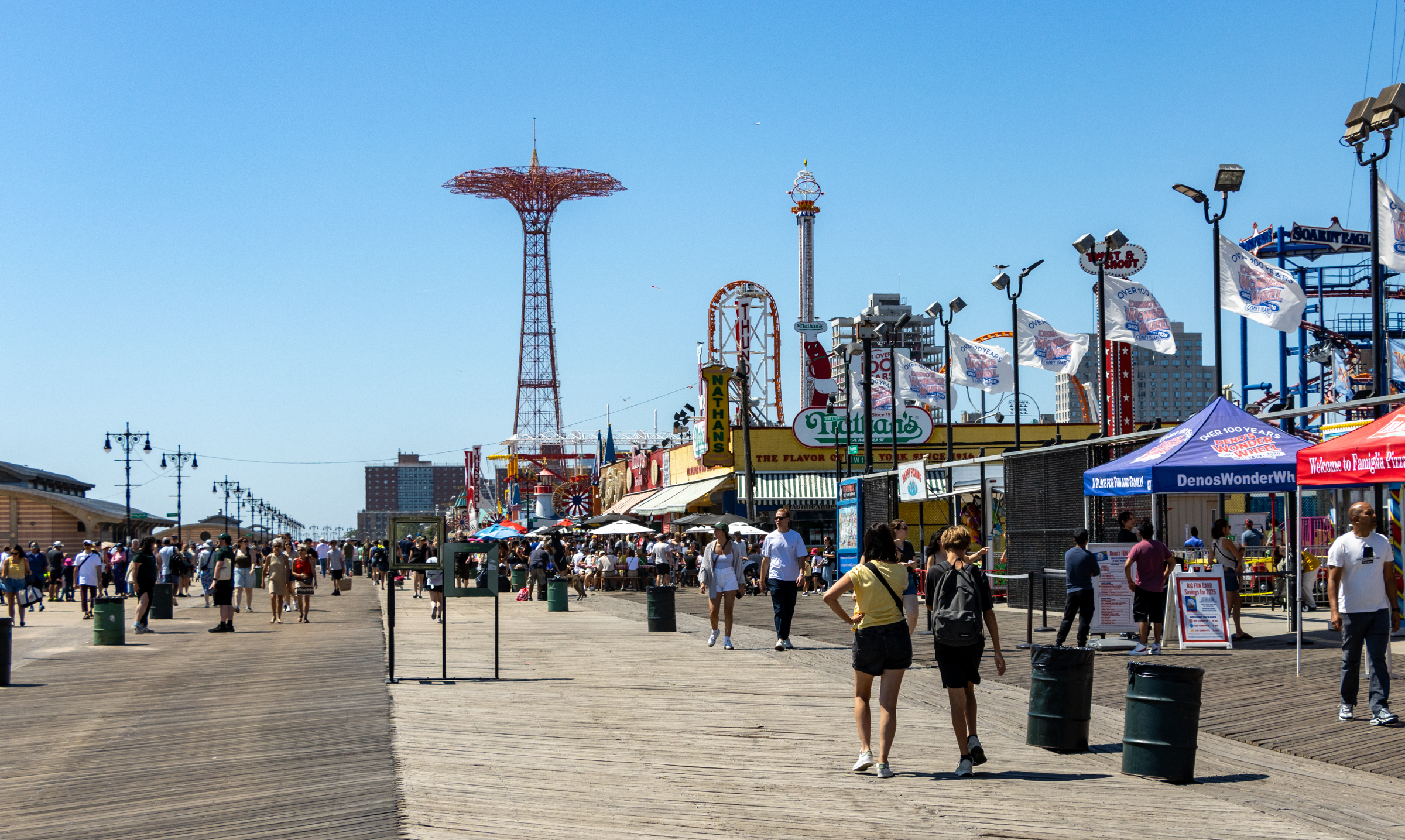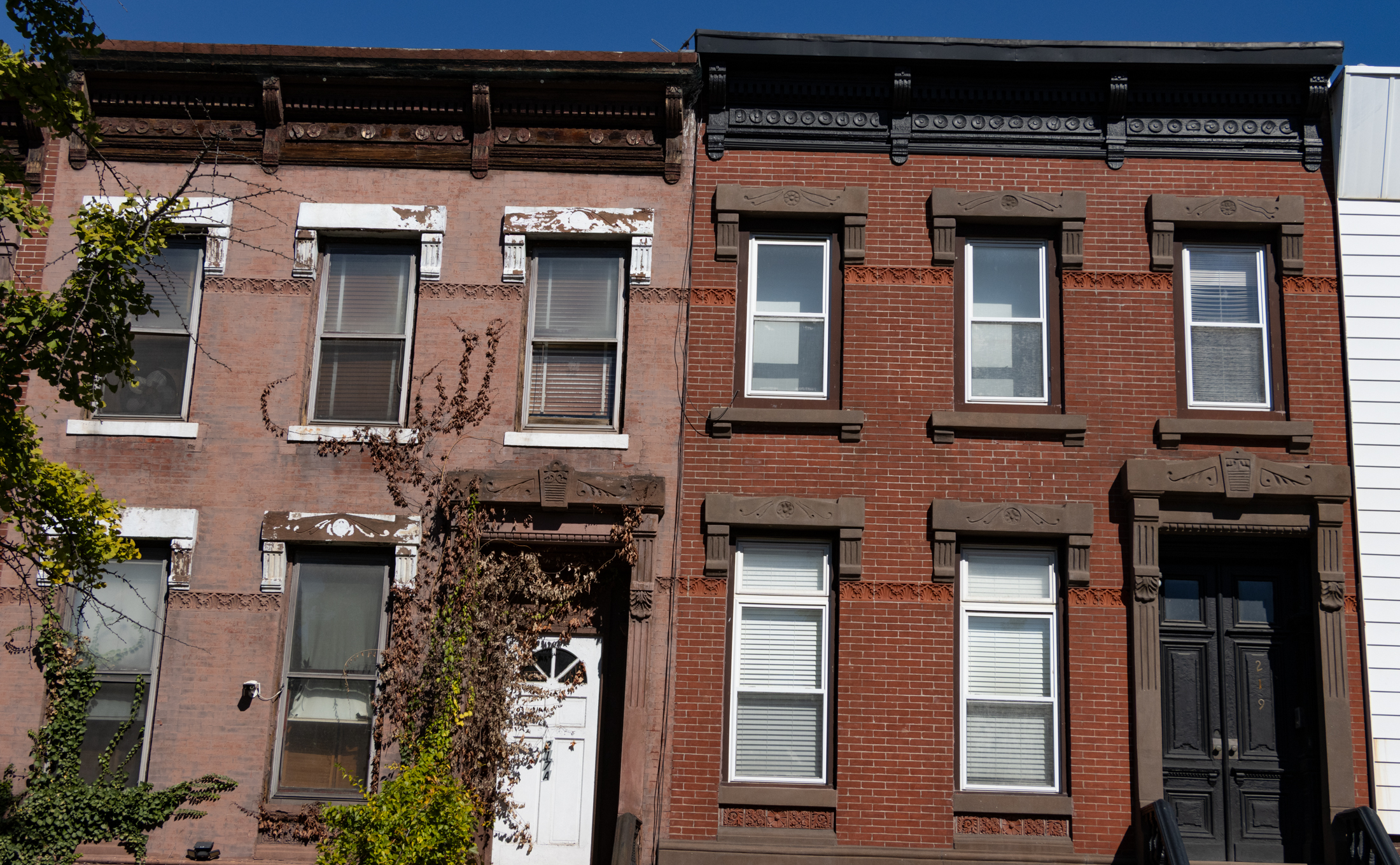Walkabout: Policing the “Great Mistake,” Part 4
Read Part 1, Part 2, and Part 3 of this story. The first Police Chief of Greater New York City was John McCullagh. The job was not something that most people, even most career policemen, would want. He was tasked with overseeing law enforcement in the largest city in the country; the now-sprawling metropolis created by…


Read Part 1, Part 2, and Part 3 of this story.
The first Police Chief of Greater New York City was John McCullagh. The job was not something that most people, even most career policemen, would want. He was tasked with overseeing law enforcement in the largest city in the country; the now-sprawling metropolis created by the union of the five boroughs in 1898.
On top of the logistical problems inherent in making one police department out of many smaller departments, he had to play politics. He was not only a stranger to Brooklyn, Staten Island and Queens; he was a Republican in a Democratic administration. Worse than that, he was an honest man among a den of thieves.
Richard Croker, the Boss of Tammany Hall, the Democratic machine that had controlled Manhattan since the 1870s, didn’t want Chief McCullagh in his position. He and his puppet mayor, Augustus Van Wyck, wanted Tammany man William S. Devery, a lowly police captain hailing from Hell’s Kitchen.
But the rules drawn up by a bi-partisan committee regarding the structure and leadership of the new New York City police force did not allow for the city’s first top cop to be a political crony.
It specifically designated that the first Chief had to be a man with experience; either the present chief of Manhattan’s police, which McCullagh was, or the chief of Brooklyn’s force, or one of their two assistant chiefs. The committee chose McCullagh.
Croker and Van Wyck were not happy, and immediately set about undermining McCullagh, and promoting Devery, lining him up to be the next chief. Meanwhile, McCullagh, who knew his days were numbered, set about reorganizing the department.
He had quite a task ahead of him, and among his biggest challenges would be to incorporate the fiercely independent Brooklyn police department into the larger New York City police department.
Almost everything in Brooklyn had to be modified to meet Manhattan’s standards. Brooklyn had an equally good force, but the city had its own way of doing things, and was reluctant to change. Even the little things, like uniforms, horses and firearms needed to change.
Of course, these were the things that affected the average Brooklyn policeman the most, because it meant he would have to spend his own money to make these changes. Police work for the honest cop has never been a high paying job.
The Brooklyn and Manhattan forces had slightly different color uniforms, even the number of buttons on their coats were different. Brooklyn’s cops, as noted in the previous chapter, had to buy new uniforms and greatcoats.
When McCullagh inspected the mounted troops in the spring of 1898, he found differences in uniforms, and even the color of the horses there, as well. Manhattan cops carried a specific model of Colt revolvers, Brooklyn’s cops had choices.
The firearms, the horses and the uniforms would all need to be phased out, and new ones purchased. Manhattan’s police standards were the new standard overall. As can be expected, this was not well received, and while inevitable and necessary, did not unite the forces.
Brooklyn’s precinct numbers had to change as well, as many Manhattan and Brooklyn precincts had the same numbers. Manhattan ruled, and that was all there was to it.
Meanwhile, as McCullagh and his administrators struggled with creating what would become the NYPD, they had bigger problems than Brooklyn malcontents. Tammany Hall was breathing down their necks, doing whatever it could to undermine the chief’s authority and position so they would have an excuse to get rid of him.
William Devery had been promoted into position, and was mentally re-arranging the furniture in his new office.
The mayor couldn’t fire McCullagh without the consent of the Board of Commissioners, the overseeing bi-partisan body mandated by the city charter. They were independent; two Republicans and two Democrats. The Democratic votes to oust the Chief were there, but the Republicans were hanging tough.
So Van Wyck simply removed one of them and replaced him with a less principled Republican, and the vote to retire McCullagh was cast at 3 to 1.
The name of William Devery was placed before them, and he was quickly ushered in as the second Chief of the City of New York. McCullagh got a $3,000 pension, and shown the door.
William S. Devery was a piece of work. He was as corrupt as could be, had no principles whatsoever, and was a bigot and racist, as well. He was the perfect Tammany Chief of Police. His loyalty was not to the force, or the city, it was to Boss Croker.
If Croker had wanted the city burned to the ground, Devery would have been in the alley lighting the matches. He was the consummate toady, but like his boss, he also had a very healthy ego and a strong sense of self-preservation.
He was also folksy, blunt and crude, and eminently quotable. The press loved him, because he made their job easy; he was always worth a headline. Consequently, there is quite a lot of information written about his term in office.
One veteran reporter, the popular Lincoln Steffens wrote, “As a Chief of Police, he is a disgrace, but as a character, he is a work of art.”
In addition to general police work and keeping the peace on the streets, the police department in 1900 was also in charge of the Election Bureau.
They chose where the polling places were; they set the borders for the election districts, and printed the ballots and picked the poll workers. Can you imagine? With Devery in charge, Tammany was assured a victory wherever they needed one.
Devery had police sanctioned “floaters” in place, men who lived in boarding houses and hotels, who for a small fee, would travel around the city and vote.
They used the names of the dead in that district, all registered Democrats, of course, and voted early and often. After the election, Devery declared to the press that it was the fairest election the city had ever seen.
That was just too much for some, and a panel was appointed by the Governor to investigate and reform the police department. The guidelines for the panel were put in place by former Governor Theodore Roosevelt, who had been Police Commissioner of NYC before being pushed out by Tammany Hall, in 1897.
The State Superintendent of Elections, who empaneled a grand jury to look into election tampering that year, was none other than William McCullagh. Karma is a you-know-what.
The panel forced Devery out by eliminating his position. Roosevelt had previously set into place a law that eliminated the governing body called the Commission of Police, and the Chief of the Commission, which was Devery.
The newly reorganized NYPD would only have one Police Commissioner. Devery was out of a job, and the new Police Commissioner was appointed in 1901. He was Board of Health Commissioner, Colonel Michael C. Murphy, a former military man.
Unfortunately for the department as a whole, he was a weak choice, which was probably Van Wyck’s and Croker’s intent. Murphy was not well, and couldn’t eat solid food. He was fed through a silver tube that led to his stomach.
Boss Croker arranged for Murphy to declare that he needed a Deputy Chief to do the everyday tasks that he couldn’t do. What better choice for the job than the newly unemployed William Devery? He was appointed Deputy Chief at a $2,000 cut in pay.
Devery wasn’t happy about that part of it, but because of Murphy’s ill health, he soon took over almost all of his old duties. Murphy told the city that he needed the experience of a veteran policeman in the position. Devery was able to thumb his nose at his opponents, once again.
There are many tales of Devery’s exploits, and it wasn’t long before he was in trouble with the citizens of the city. He was sued by the Merchant’s Association in a civil suit that charged him with “injustice, tyranny and oppression.”
The suit was filed because of Devery’s handling of charges leveled against members of the police department, mostly charges of extortion and gross prejudice. He was supposed to police the police, but was extremely arbitrary in how he did it.
He used racial slurs in describing Jewish and Chinese merchants, and laughed off merchant’s complaints that his men refused to arrest attractive women who were stealing from them. He also famously fined an officer 20 day’s pay for not shooting a fleeing suspect. “Twenty days for not hitting him,” he was quoted as saying.
At the end of 1901, the mayoral election proved to be the end of Devery’s career. Augustus Van Wyck was termed out, and his Tammany Hall successor lost the election to popular reform candidate and Brooklyn’s favorite son, Seth Low.
Low had campaigned hard for the job, and one of his promises to the city was that he would finally make sure Devery was gone for good. On January 1st, 1902, the new Police Commissioner, Colonel John Partridge, called Devery into his office, and told him his career with the police department was over.
Ex-Mayor Van Wyck called Devery “the best police chief we ever had.” History disagrees with that assessment. He actually set the bar about as low as it would go.
Thirty years later, a reporter would write that Devery had “ruled the city’s police in the days of fat cops, old fashioned helmets and double rows of brass buttons, barrooms and wide-open graft. His regime is said by many to have been one of the reasons the position of chief of police was abolished.”
Devery opened a bar on the West Side, in his old neighborhood of Hell’s Kitchen, and ran for district leader. His bar headquarters was known as the “Sign of the Pump,” referring to the fire hydrant across the street where he used to gather with his boys and plan strategy.
Reporters knew if they wanted a good quote, or “Big Bill’s” acerbic opinions on the new mayors, the police department, or anything else, he would by the pump, ready to talk.
They came to him regularly, and quoted him often. He was extremely colorful, funny, and unfettered by common standards of decency. He had no filter, whatsoever. After all, he was just a bartender.
He thought his words of wisdom and journalistic popularity would translate into votes, and so he created his own political party – the Independent People’s Party. The symbol of the party was, what else, the pump. His headquarters was his bar, which had been nicknamed “the Bug House.”
He ran for mayor and came in sixth out of seven entries. People may have enjoyed his commentary, that didn’t mean they wanted him running the city. He got 2,960 votes in the city, of which 237 came from Brooklyn. There are those in Brooklyn who have always loved a good joke.
Devery was undaunted. He moved to Far Rockaway a few years later and led an unsuccessful attempt to have that area secede from the city. He began to have health problems, ballooned to over 300 pounds, and died of a stroke in his bathroom in 1919.
By that time, he had been long forgotten as New York City’s second, and perhaps worst, Chief of Police. He was supposed to have been quite rich, most Tammany men were, with their funds hidden from view, but the probate of his estate showed that he had made bad investments, and had lots of debt. In the end, his estate was in the red. Devery would probably have enjoyed that. He owed the state twenty-eight cents.
(Photo:S.Spellen)
Policing the “Great Mistake” Part One
Policing the “Great Mistake” Part Two
Policing the “Great Mistake” Part Three
Research for this series comes from local newspapers and other press. Many of the details regarding Chief McCullagh and his relationship with Boss Croker and Mayor Van Wyck comes from an excellent article by Bernard Whalen and David Doorey, called “The Birth of the NYPD.”






What's Your Take? Leave a Comment